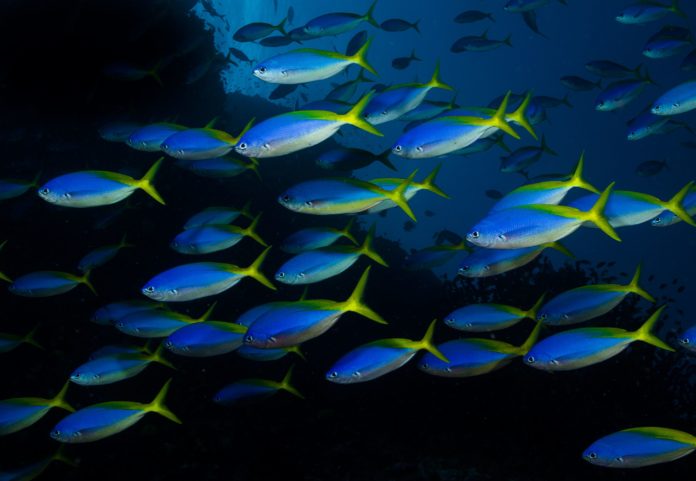Gregarious behavior of organisms is known to have numerous advantages such as resource exploitation, mating success, environmental modification, and reduction of predation risk. This behavior is known for modern marine arthropods such as brachyurans, anomurans, and macrurans.
Fish show gregarious behavior and cluster in shoals; This helps them acquire food and protect against predators.
However, ocean acidification and global warming, upsetting the way fish interact in groups. Many species are shifting poleward and interacting with fish in more temperate areas in new ways.
Scientists from the University of Adelaide evaluated the behavior of gregarious tropical species under controlled laboratory conditions. They determined how species interacted and behaved in new ways with changing temperature and acidification.
Ocean acidification results from the rising concentration of carbon dioxide in the atmosphere, which results in rising ocean surface temperature. Although warming and acidification are different phenomena, they interact to the detriment of marine ecosystems.
University of Adelaide Ph.D. student Angus Mitchell who performed the experiments, said, “We found that tropical and temperate fish species tend to move to the right when coordinating together in a shoal especially when spooked by a predator, but this bias significantly diminished under ocean acidification.”
“Mixed shoals of tropical and temperate species became less cohesive under future climate conditions and showed slower escape responses from potential threats.”
Professor David Booth from the University of Technology, Sydney said, “Our findings highlight the direct effect of climate stressors on fish behaviour and the interplay with the indirect effects of new species interactions.”
Professor Nagelkerken said, “Strong shoal cohesion and coordinated movement affect the survival of a species: whether to acquire food or evade predators.”
“If the ability for fish to work together is detrimentally affected it could determine the survival of particular species in the oceans of the future. Tropical species may initially fare poorly when moving into new temperate areas.”
Journal Reference
- Ivan Nagelkerken, et al. Ocean warming and acidification degrade shoaling performance and lateralization of novel tropical–temperate fish shoals. DOI: 10.1111/gcb.16022
